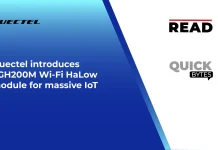Speranza Therapeutics announces the launch of an outcomes-based care program for providers treating patients experiencing opioid withdrawal. Opioid withdrawal symptoms commence when a patient using opioids either stops using or decreases their dose. Providers in Addiction Treatment facilities and Pain Management practices deal with patients suffering from withdrawal on a daily basis.
The number one reason patients abandon treatment prematurely is the fear of withdrawal symptoms. There is a high cost to providers when patients leave Against Medical Advice (AMA) since the greatest cost to the facility is the admission process. Keeping more patients in treatment helps providers and health plans to avoid costly readmissions.
“Through recent partnerships with leading inpatient facilities, Speranza has witnessed significant reductions in patients leaving AMA by using Speranza Therapeutics S.T. Genesis,” says Todd Krasinsky, Speranza Therapeutics Co-Founder and Chief Strategy Officer. S.T. Genesis is a noninvasive, drug-free device that reduces the physical and emotional effects of opioid withdrawal. “When withdrawal symptoms are managed, the patient remains comfortable, engaged, and capable of staying in treatment longer,” explains Mr. Krasinsky. As a result, Speranza decided to launch its outcomes-based program to support facilities in adopting S.T. Genesis by measuring the correlation between overall facility AMA rates and the device.
“We have seen an increase in patients afflicted with opioid use disorder abandoning treatment during the first few days of the withdrawal management process,” says Jeffrey Thomas, MHS, LPC, CAADC, CEO of White Deer Run facility in Allenwood, PA. “These patients respond especially well to the device and as a result, have remained engaged in treatment.”
Providers using the S.T. Genesis averaged a 50% reduction in AMA rates compared to opioid replacement induction protocols, and 90% of those patients went on to longer term treatment programs in Residential Treatment Centers or through Intensive Outpatient Programs.






